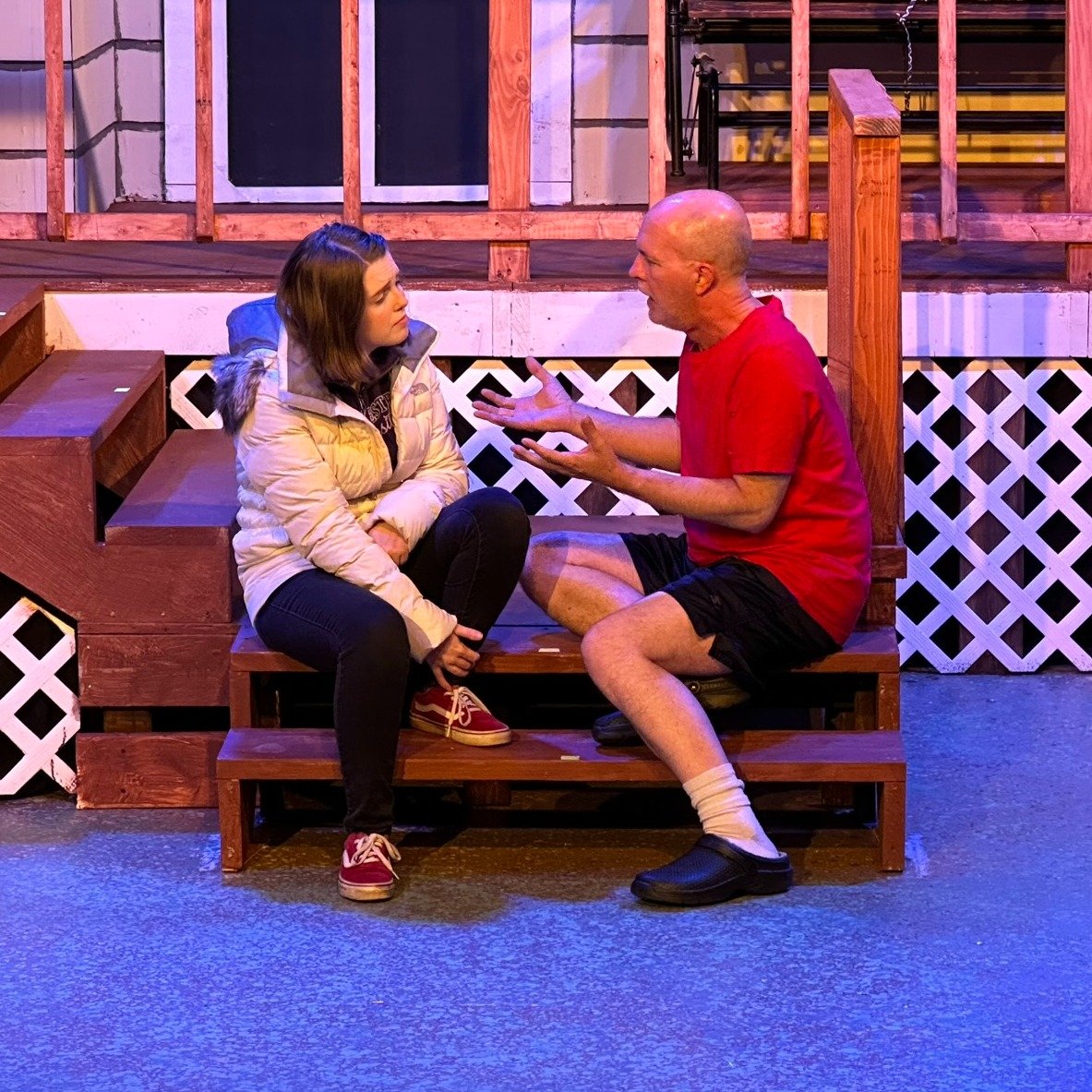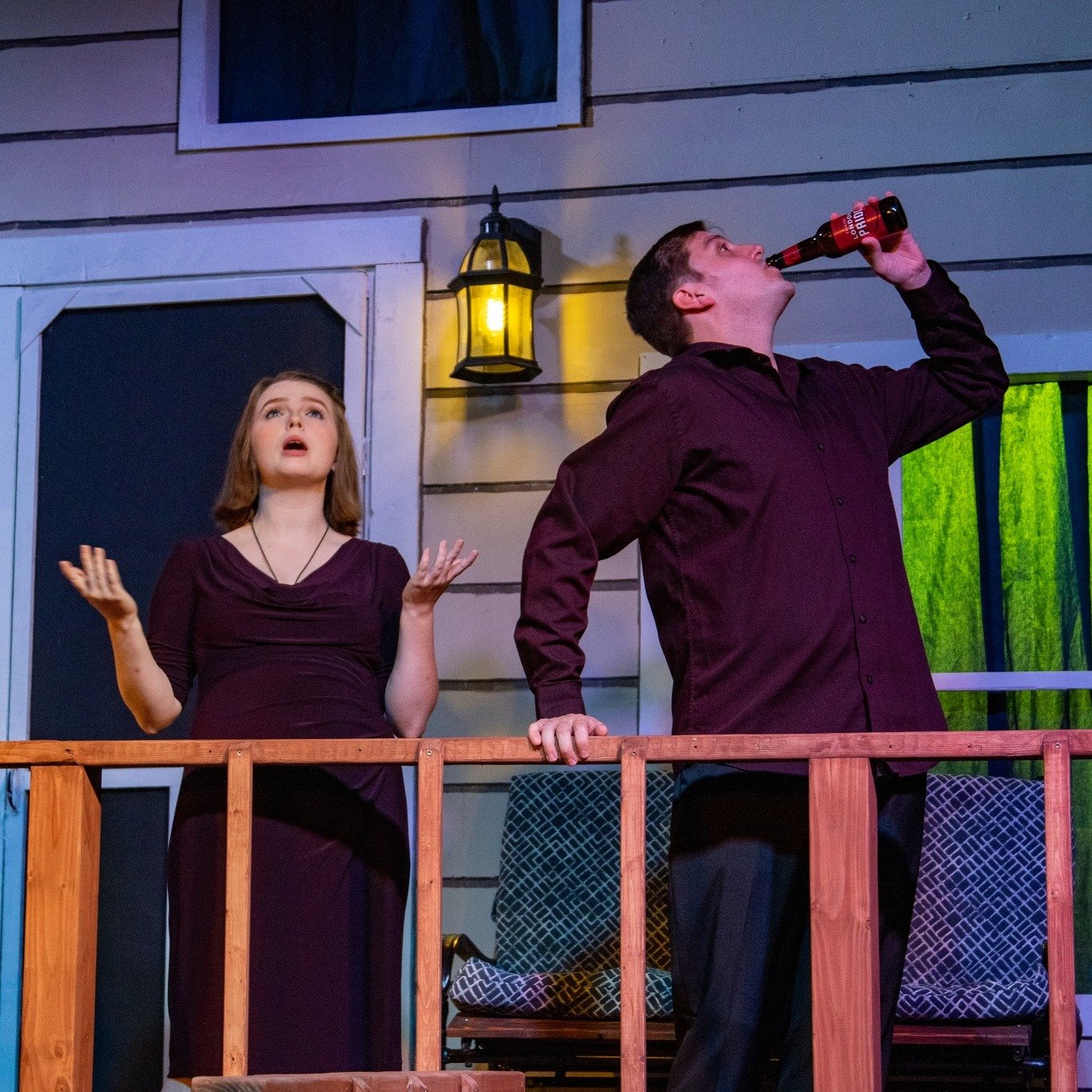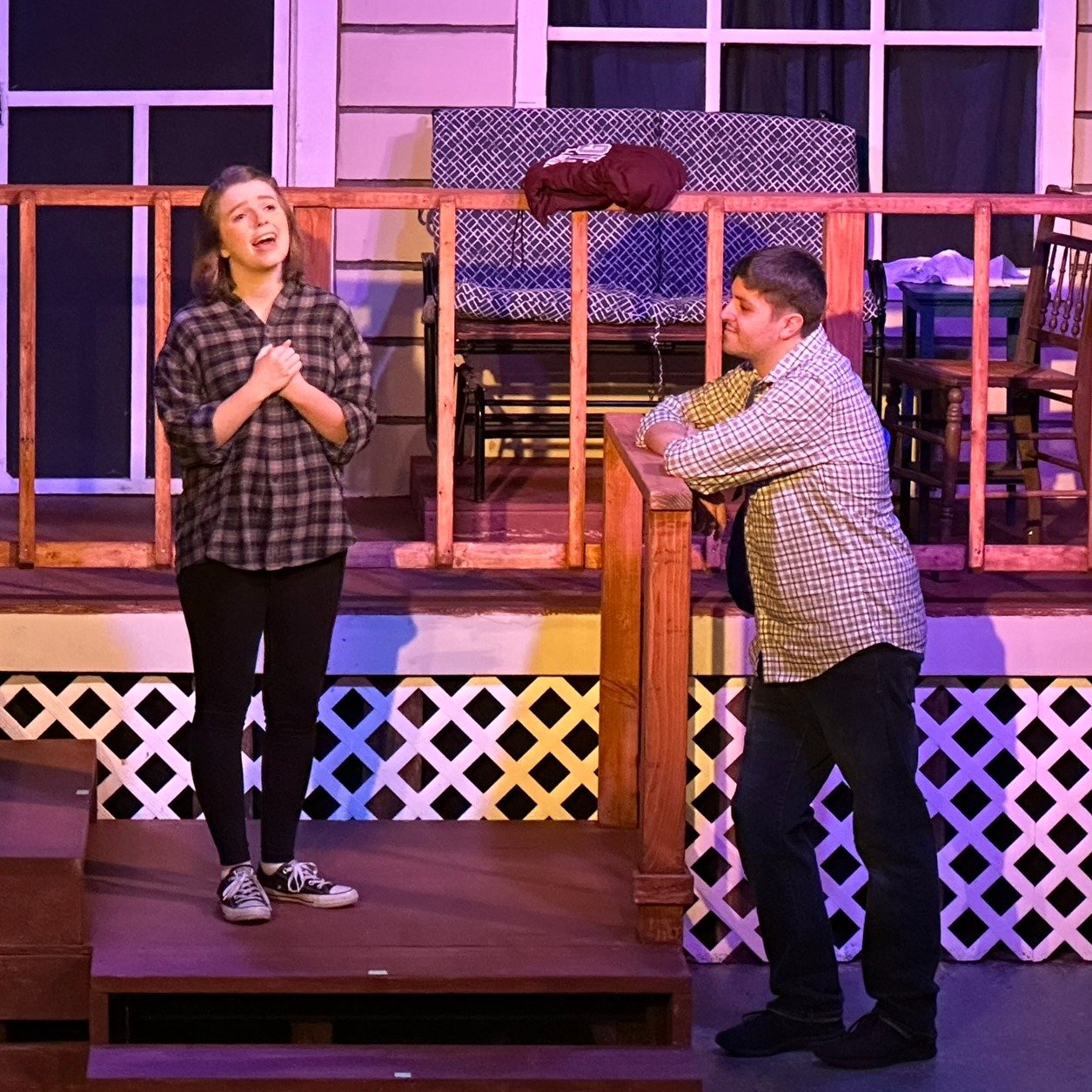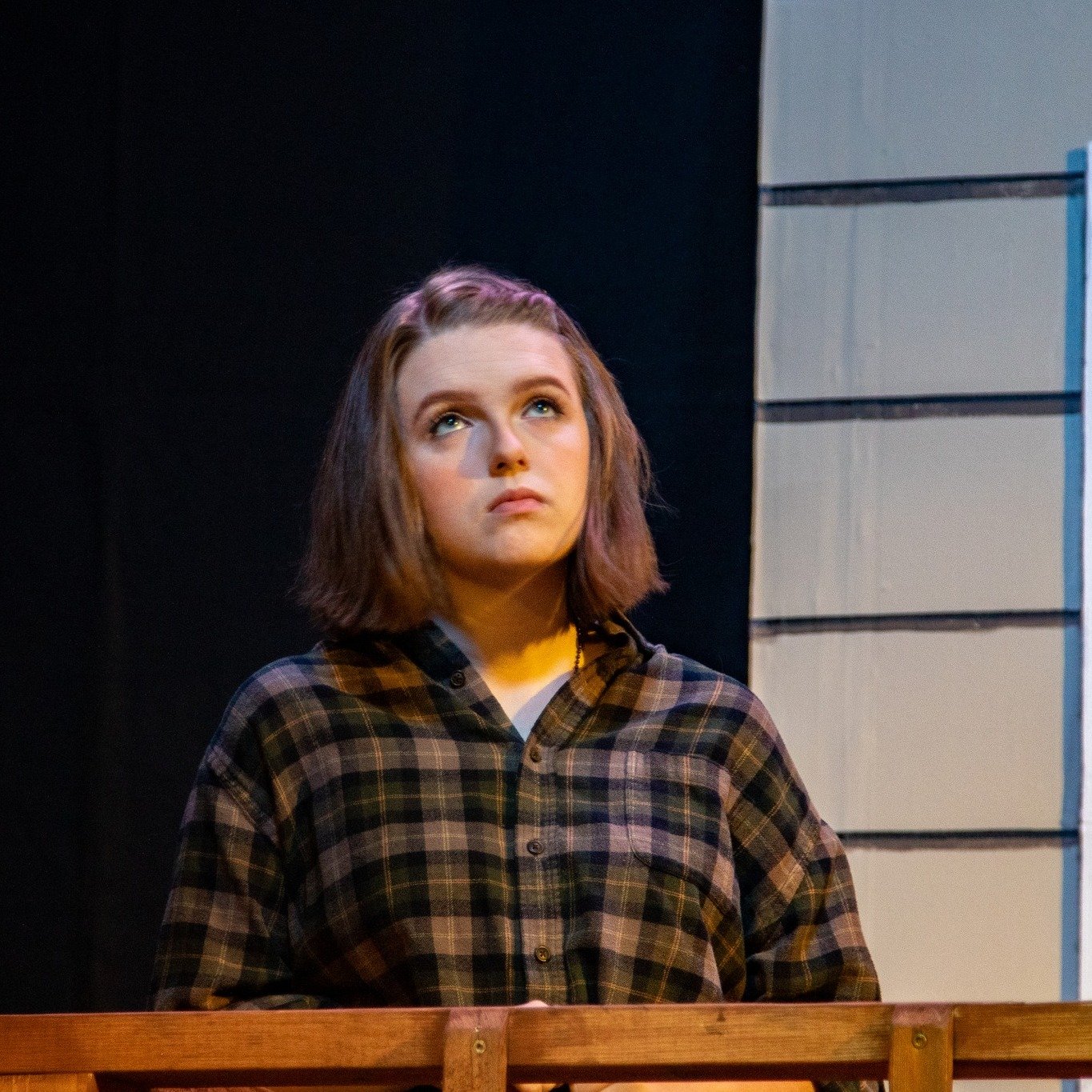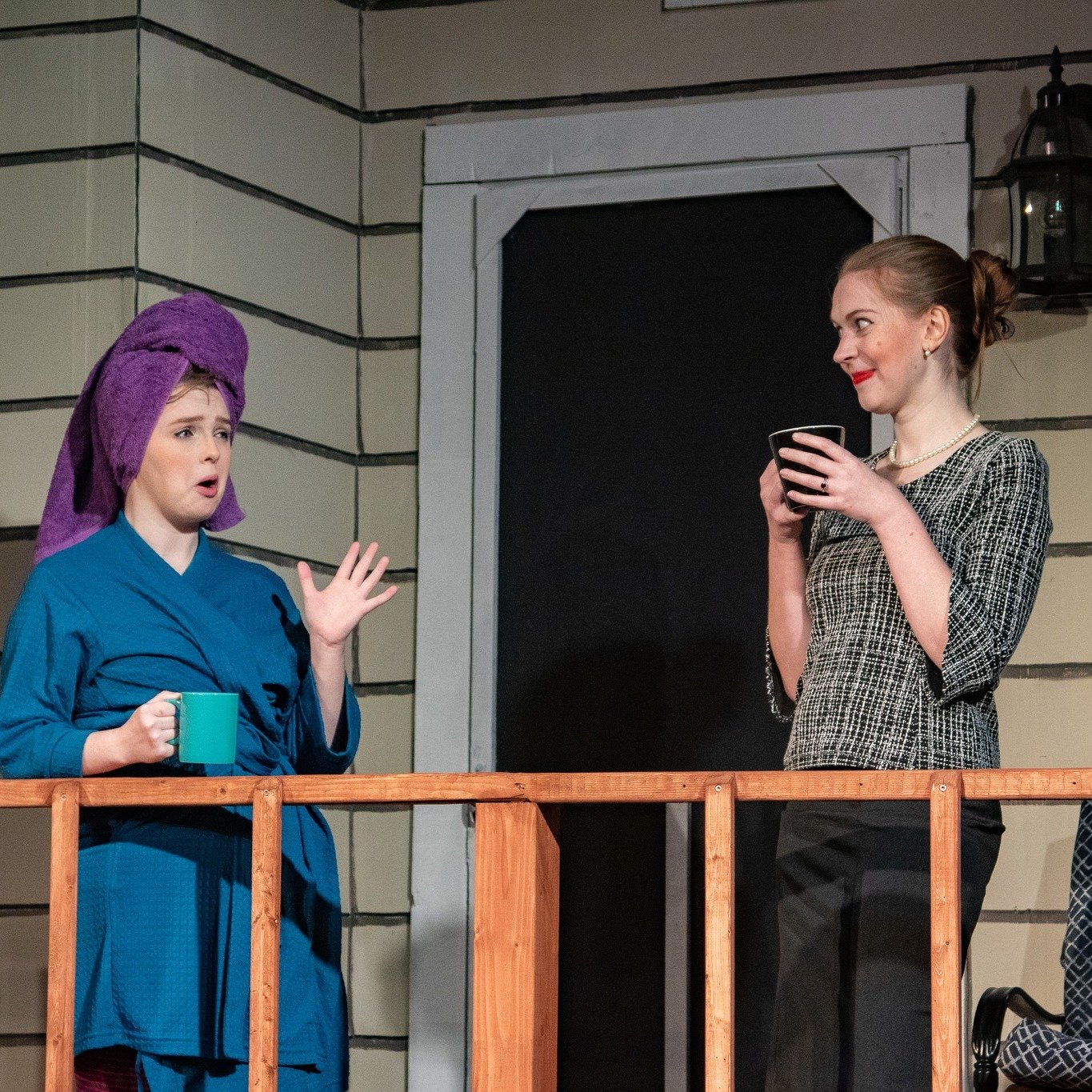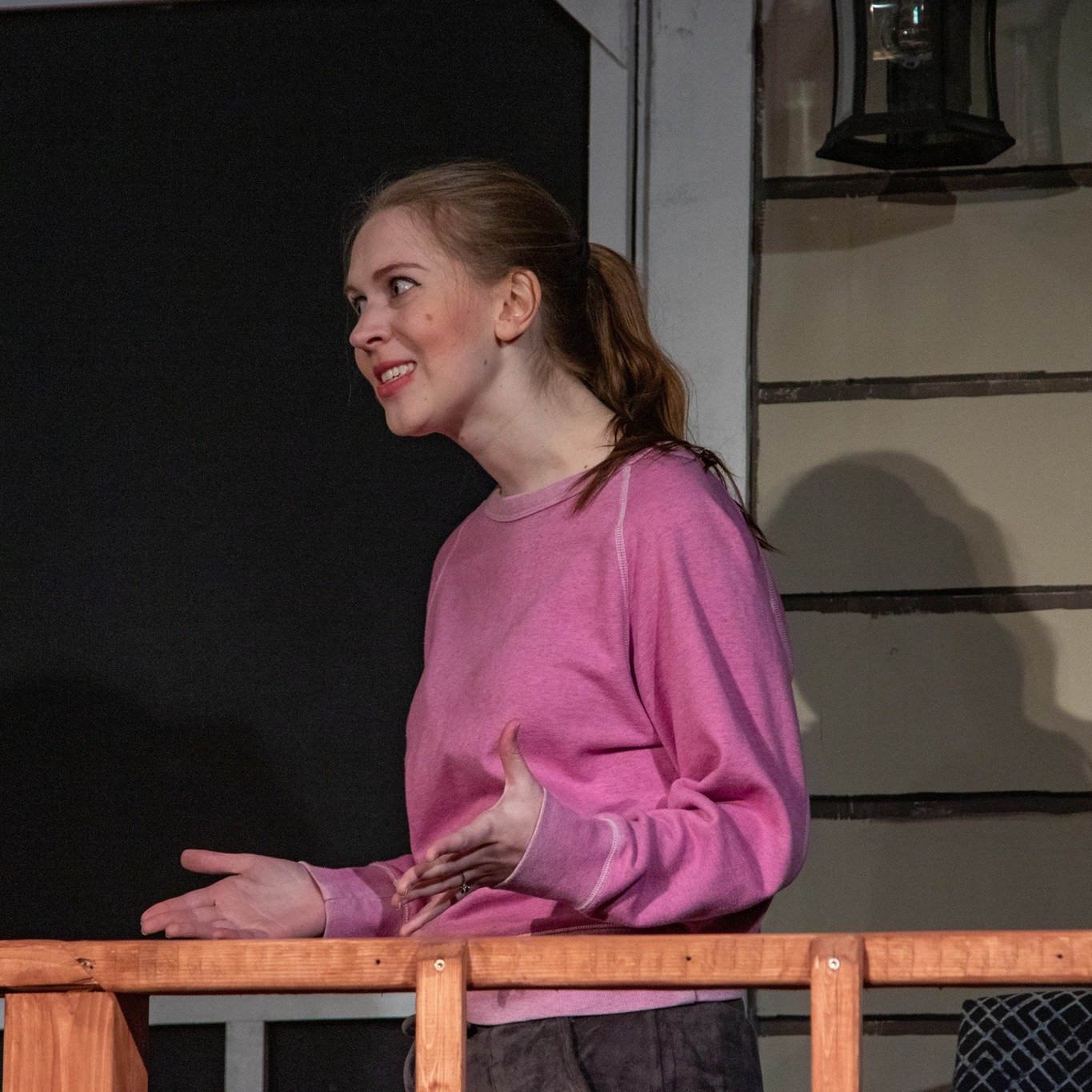‘Proof’ @ Allen Contemporary Theatre
Photos by John Mead
—Jan Farrington
In my admittedly theater-obsessed head, David Auburn’s Pulitzer Prize-winning Proof, playing through September 3 at Allen Contemporary Theatre, fits neatly into a trilogy of intriguing plays about young women…and math.
There’s Lauren Gunderson’s recent Ada and the Engine, about early 19th-century math genius Ada Lovelace (poet Lord Byron’s daughter), whose work led to the development of an early computer design (the “engine” of the title). There’s Tom Stoppard’s magnificent Arcadia (also set in the early 19th), in which a very young heroine’s math and philosophical discussions with her tutor lead to something very like our modern-day chaos theory—two centuries early.
And then there’s Proof, Auburn’s story of the daughters of a math legend at the University of Chicago (a notoriously egg-headed institution) who is descending into mental disarray. Younger daughter Catherine (Karina Barrett) has become the caretaker for her father Robert (Jim Bloomingdale), her own education interrupted by his needs. As he declines, older sister Claire (Hanna Destiny Lynn) flies in from New York for a visit, with an agenda that will roil the waters for everyone else: Catherine, Robert, and even Hal (Andy Beckman), the professor’s one remaining graduate student. Hal has reasons of his own to stay close (is Catherine among them?), including the 100-plus notebooks his mentor left behind—and one more in a locked drawer.
Though the rarified university setting may be foreign to us, Proof (the title refers to a step-by-step explanation of a math concept—or, perhaps, to the “proof” of any of life’s many mysteries) touches on human issues we’ve encountered in our personal and family lives: aging parents, sibling rivalries, mental health, family legacies and expectations, balancing me-first and family-first needs. And ACT’s production, thoughtfully directed by Sara Jones, does a fine balancing act—keeping things human while also holding our interest in Auburn’s side-trips into academic and intellectual matters.
As the professor/father, Bloomingdale conveys affection and agitation equally well. He’s desperate (and sometimes delusional) about the state of his work, but also concerned for Catherine’s future. At one point, he’s so sure that “the machinery” of his mind is working again (after long years) that his words and body shake from the emotion.
As older daughter Claire, Lynn captures the character’s cool, crisp decisiveness. We don’t warm to Claire at first, but her almost maternal concern for Catherine (their mother died long ago) lets us see and feel her good intentions—and here and there, glimpses of the partying, vibrant girl she once was.
Beckman’s Hal, we think, might have designs on the professor’s intellectual property, or on Catherine herself. But the performance—Hal is a bit goofy, big-hearted, and shows real feeling toward both Robert and Catherine—gives off enough warmth to let us trust him, even when the evidence skews against it.
And as Catherine, Karina Barrett takes on the considerable challenge of portraying a lively, edgy young woman who just might be a great deal more than she seems. And while she’s only intermittently able to convince us of those hidden depths, Barrett gives her performance plenty of life and vibrancy as she swings among the pieces of her emotional life—as little sister, grieving daughter, snarky student, Hal’s crush, and her dad’s favorite “talk it through” math partner.
“I think I’m like my dad,” she says softly in one scene. And then, “I’m afraid I’m like my dad.”
It’s a lot for one young mind, one young heart, to carry into her future. And David Auburn’s play makes us feel every bit of it.
WHEN: August 18-September 3, 2023
WHERE: ACT, 1210 E. Main, Allen TX
WEB: allencontemporarytheatre.net
